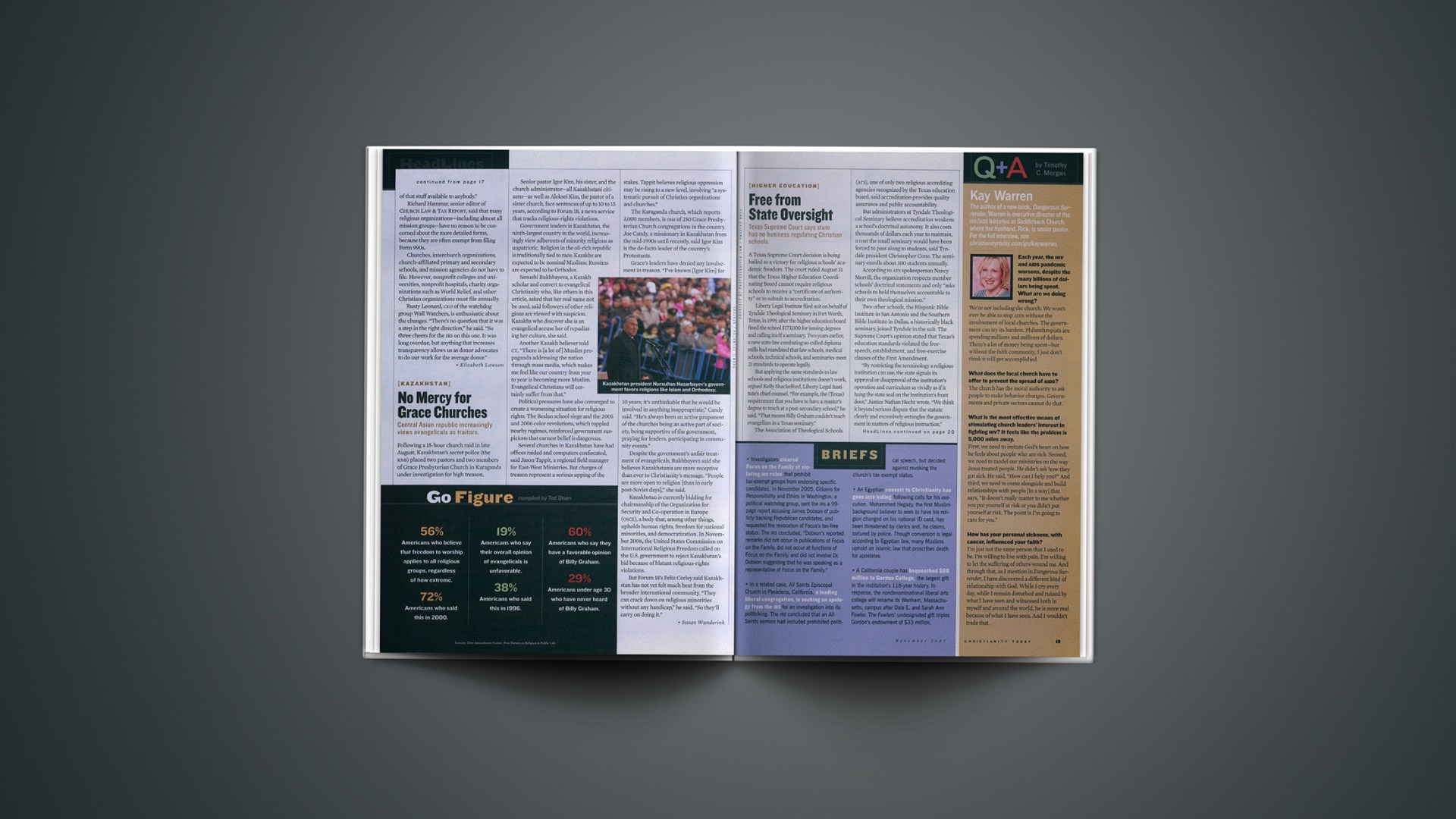A Texas Supreme Court decision is being hailed as a victory for religious schools’ academic freedom. The court ruled August 31 that the Texas Higher Education Coordinating Board cannot require religious schools to receive a “certificate of authority” or to submit to accreditation.
Liberty Legal Institute filed suit on behalf of Tyndale Theological Seminary in Fort Worth, Texas, in 1999, after the higher education board fined the school $173,000 for issuing degrees and calling itself a seminary. Two years earlier, a new state law combating so-called diploma mills had mandated that law schools, medical schools, technical schools, and seminaries meet 21 standards to operate legally.
But applying the same standards to law schools and religious institutions doesn’t work, argued Kelly Shackelford, Liberty Legal Institute’s chief counsel. “For example, the (Texas) requirement that you have to have a master’s degree to teach at a post-secondary school,” he said. “That means Billy Graham couldn’t teach evangelism in a Texas seminary.”
The Association of Theological Schools (ATS), one of only two religious accrediting agencies recognized by the Texas education board, said accreditation provides quality assurance and public accountability.
But administrators at Tyndale Theological Seminary believe accreditation weakens a school’s doctrinal autonomy. It also costs thousands of dollars each year to maintain, a cost the small seminary would have been forced to pass along to students, said Tyndale president Christopher Cone. The seminary enrolls about 300 students annually.
According to ATS spokesperson Nancy Merrill, the organization respects member schools’ doctrinal statements and only “asks schools to hold themselves accountable to their own theological mission.”
Two other schools, the Hispanic Bible Institute in San Antonio and the Southern Bible Institute in Dallas, a historically black seminary, joined Tyndale in the suit. The Supreme Court’s opinion stated that Texas’s education standards violated the free-speech, establishment, and free-exercise clauses of the First Amendment.
“By restricting the terminology a religious institution can use, the state signals its approval or disapproval of the institution’s operation and curriculum as vividly as if it hung the state seal on the institution’s front door,” Justice Nathan Hecht wrote. “We think it beyond serious dispute that the statute clearly and excessively entangles the government in matters of religious instruction.”
The Texas education board issued a statement saying the decision “could have far-reaching implications” and that “it would be premature to speculate on [its] impact.”
“I think other courts will cite it,” said Charles Haynes, a senior scholar at the First Amendment Center, calling the decision “symbolically important.” “It sends a strong message—that government should not interfere with religious teaching.”
Copyright © 2007 Christianity Today. Click for reprint information.
Related Elsewhere:
The Dallas Morning News and Baptist Press reported on the decision; Liberty Legal issued a press release.
Other articles on higher education and law are available on our site.










